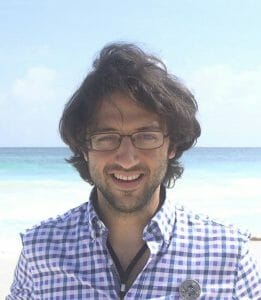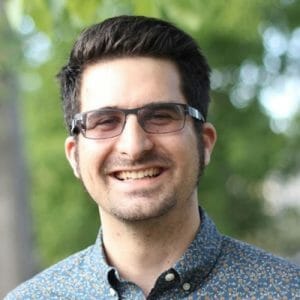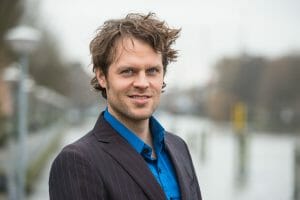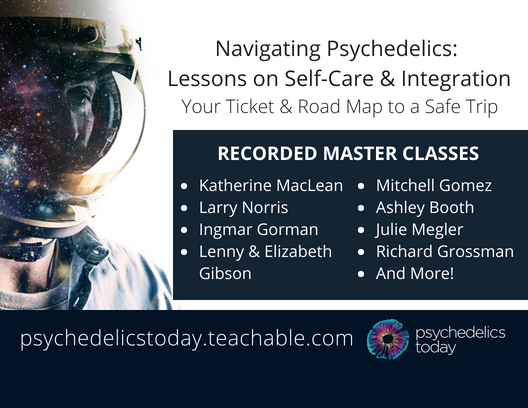In this episode, Kyle and Joe interview Mike Margolies of Psychedelic Seminars. In the show, they cover topics including guests and conversations from the Psychedelic Seminars, the decriminalization of all drugs, and the importance of allowing psychedelic use to be a part of training therapists for psychedelic therapy.
3 Key Points:
- Psychedelic Seminars is an educational conversation series deepening awareness of the benefits, risks, and complexities of psychedelics.
- There are large topics of decriminalizing psilocybin or the movements for ‘decriminalize nature’, but the conversation on decriminalization of all drugs is rare, which is what's really important.
- Some companies (MAPS for example) allow the option to use MDMA as a part of their therapist training program while other companies who are training therapists for psilocybin therapy, don't have the option to use it. This leaves the question, "Should the psychedelic experience be part of the psychedelic therapy training?"
Support the show
- Patreon
- Leave us a review on iTunes
- Share us with your friends – favorite podcast, etc
- Join our Facebook group - Psychedelics Today group – Find the others and create community.
Navigating Psychedelics
Show Notes
About Mike
- Mike used to work as a chemical engineer in corporate America, and then he did Ayahuasca
- When he returned, he thought to himself about what he wanted to do with the rest of his life
- He took a look at the pulse of the country and looked at what it needed
- There wasn't anyone organized locally in Baltimore, so he started Psychedelic Seminars
- Now he is living in the Bay Area, doing events locally
- He has been interviewing people and putting the videos out globally
Psychedelic Seminars
- They will be having some Indigenous people at the seminar
- It's hard to get Indigenous people to seminars and conferences, because, what's in it for them?
- The goal is to ramp up the project and do a seminar every month, where it usually takes place every few months
- They are doing it all in a home, privately
- The whole project is donation dependent, they are doing it all for free
- You can support the mission here
- After Michael Pollan, they did one with Jim Fadiman
- He did another with Ayelet Waldman
- The talks were on microdosing and the unknowns of microdosing
- Just because there is no real harms taking a large dose of LSD, doesn't mean there aren't any harms taking a low (micro) dose of LSD frequently
- Mike thinks that the term Jim Fadiman uses is its ‘sub-perceptual’, in that you have a noticeable effect on the mood, but no other way of noticing it
Decriminalization
- Drug Policy tends to stay in the realm of psychedelics only
- There are large topics of decriminalizing psilocybin or the movements for ‘decriminalize nature’, but no one likes to talk about the decriminalization of all drugs, which is what's really important
- Poppy is not considered in decriminalize nature, which is selective nature decriminalization
- It's not a real decriminalization, it's just a low priority for law enforcement
- He’s been asking in his conversations, opinions on decriminalizing all drugs
- Different drugs have different risk profiles
- “Just because you're not using criminal justice as your mechanism for reducing risks of drugs, doesn't mean you do nothing. The last thing we want to do is add criminalization to those who are already suffering, this is why we should decriminalize all drugs” - Mike
- Laws should be written in terms of what are you not allowed to do, not what you're allowed to do
- He is allowed to walk down the sidewalk, but not punch someone he walks past, but the law shouldn't be to get a license for walking down the street so long as you don't punch someone
- The communities that are marginalized continue to be marginalized by the drug war
Psychedelic Therapy and Experience with Use
- With MAPS, there is an option to do MDMA as a part of the training
- With psilocybin, at least with Compass Pathways, there is not an option to use psilocybin. Mike says that's a huge issue
- When you scale treatment, there is the risk of losing the quality of care
- “We aren't going to solve the problems of our future by mass distributing psychedelics” - Mike
- The fact that we have such mass amounts of widespread depression, means that we have a deeply ingrained systemic issue at hand
- Psychedelics treat the symptoms, but we still need to fix the underlying cause
- “If you are distributing psychedelics, but still exacerbating the same underlying issues, you now have the problem and solution in the same hefty package” - Mike
- “Psychedelic experience is intrinsically something spiritual. How can you guide someone in spiritual practice if you haven't experienced it yourself?” - Mike
- “Inducing a state intentionally, and guiding someone through a process, its completely unethical to guide someone through a spiritual process that you haven't been through yourself.” - Mike
New Economy
- Burning man is not a barter economy, it's a gift economy, where things are given without an expectation of receiving something in return
- We are far from that economy
- What if we had a world where instead of trying to extract value, we were trying to create value?
Links
About Mike Margolies

Since 2015, Mark has worked full-time in the psychedelic community, starting and contributing to a number of projects as an event and media producer, connector, and advisor. He is the Founder of Psychedelic Seminars, an educational conversation series deepening awareness of the benefits, risks, and complexities of psychedelics. On the PsychSems stage, he has interviewed a range of leaders including bestselling author Michael Pollan, Dr. James Fadiman and Ayelet Waldman on microdosing, and therapeutic ketamine expert Dr. Raquel Bennett. He started the project in 2015 after returning to his home city of Baltimore to build community for open and honest conversations about psychedelics. The project now operates primarily out of the San Francisco Bay Area and livestreams globally. Through his psychedelic community work in Baltimore, he seeded the Baltimore Psychedelic Society. He has sparked and mentored similar Psychedelic Societies around the world from Washington DC to San Francisco to Portugal. He helped start the Global Psychedelic Network to connect them.
 Get a 30 day free audible trial at audibletrial.com/psychedelicstoday
Get a 30 day free audible trial at audibletrial.com/psychedelicstoday In this Episode, Kyle sits down with Elizabeth Nielson and Ingmar Gorman, Co-founders of Fluence, Training in Psychedelic Integration. They are both therapists on the MAPS clinical trial for MDMA Assisted Psychotherapy for PTSD.
3 Key Points:
- Elizabeth and Ingmar are co-founders of Fluence, an online Psychedelic Integration Training program.
- If psychedelic treatments become available more widely, the fear is that therapists won't be as educated on how to handle their patient interactions based on the behavior of each psychedelic. Psychedelic Integration Therapy Training is so important.
- There are 3 phases to the MDMA for PTSD clinical trial. Phase 1 would be pre-clinical data about the chemistry of a drug, Phase 2 is where you begin to test your treatment in a patient population, and Phase 3 is where you get the data to demonstrate that the treatment is superior to a placebo and other treatments in general.
Support the show
- Patreon
- Leave us a review on iTunes
- Share us with your friends – favorite podcast, etc
- Join our Facebook group - Psychedelics Today group – Find the others and create community.
Navigating Psychedelics
Show Notes
About Ingmar
- Ingmar is a previous guest of the show
- He is a private Investigator for the MAPS MDMA trial
- He is a therapist and the Co-founder of Fluence
About Elizabeth
- Elizabeth is a Clinical Psychologist
- She has a long history in working with clinical trials as a therapist
- She is part of the psychedelic education and continuing care program
- She does a lot of supervision and training for therapists
The Trial
- The approval of expanded access by the FDA includes 50 people in total
- They are near the end of MAP 1 (out of MAP 1 and MAP 2)
- When they transition into MAP 2, it will be a little more refined
- MAP 2 is different participants than MAP 1
- There are 3 phases
- Phase 1 would be pre-clinical data about chemistry of a drug and how it metabolises, if its poisonous, etc
- Phase 2 is where you begin to test your treatment in a patient population
- Phase 3 is where you get the data to demonstrate that the treatment is superior to a placebo and other treatments in general
- They are done as a double-blind trial, both the therapist and patient don't know if the patient is receiving the treatment or now
Take-aways
- There is a lot of information that has to be shared effectively
- The therapists are very much in the lives of the participants on top of just the MDMA
- Instead of learning from the trials of what to do on a practical level, its about inspiring them to bring this as an actual treatment for people
- The multiple ways that PTSD can manifest and look like, and the may ways that MDMA can look like when administered, have some commonalities
- The deepening, the broadening, the way they communicate, can all be the same
- Ingmar holds the belief in the inner healing intelligence of all people
- One of the first things he does when he begins with a new patient, he says that this is something he really believes in, and his role as a therapist to help them in their own healing process and mechanism
- What Elizabeth wanted to learn, know and practice while she was going through school, isn't what she she thought it was until she found it
- She says this work really requires them to trust people's minds and experiences
- There is something that they tell their patients, “Don't get ahead of the medicine” - Elizabeth
- There is an interesting paradox between not knowing and following intuition, to having an actual method and following that
- There is a sweet spot between following a script to following your intuition as a therapist
- You want to trust that inner healer process of the patient, but also need to know when to intervene (usually from a safety standpoint)
Fluence
- 3 days after Horizons, Elizabeth was at home with a cold, and talked to Ingmar that morning curious for a name for the project
- Fluence means, magical or mystical power or source of power
- It can also refer to the density of particles of energy
- They teach about harm reduction and integration with their patients in their practice
- They aren't teaching protocols in the workshops, they just think the harm reduction is important
- The last part of integration is mindfulness
- Ingmar’s biggest influence are his clients and patients, he is so inspired by them
- A large piece of the motivation for creating Fluence is from patients just looking for someone to talk about their experience with
The Why
- A mother whose teenage daughter with depression, reached out to Ingmar with trouble trying to treat her depression
- The family decided it would be a good idea to use Ketamine therapy, which was successful
- She was doing so well, so well that she then went to a therapist to integrate it
- The therapist that she went to then instead of responding positively, decided to fire the teen for further therapy, and report the parents to child care services for providing ketamine therapy
- Ingmar says their position is not that everyone needs psychedelic integration therapy, its specifically for those that don't feel supported by family or community, and it gives them a professional service as an option
- "Psychedelics are not 10 years of change in one night, they are 10 years of insight in one night. integration is so important." - Elizabeth
- The goal is to support people in making a change that feels safe and right for them
- If the treatments become available more widely, the fear is that therapists won't be as educated on how to handle their patient interactions based on the behavior of each psychedelic
- Mental health practitioners can be a great source for working through those experiences
Menla Training
- Menla Training
- They could really take their time with the process and training
- The trainings that they had gone to has made their own Fluence courses better
- In 2019 they had 5 of the trainings for clinicians, and the trainings will be better and better as they go
Ketamine Infusion Therapy
- The experience is not dose dependent
- The purpose of the workshop is to educate both therapists and doctors about what can happen in psychotherapy
Links
Psychedelics 101 and 102 Workshop at ICPR 2020
About Elizabeth

Dr. Elizabeth Nielson is a co-founder of Fluence and a psychologist with a focus on developing psychedelic medicines as empirically supported treatments for PTSD, substance use problems, and mood disorders. Dr. Nielson is a therapist on FDA approved clinical trials of psilocybin-assisted treatment of alcohol use disorder, MDMA-assisted treatment PTSD, and psilocybin-assisted treatment of treatment resistant depression. Through Fluence, she provides continuing education and training programs for therapists who wish to engage in integration of psychedelic experiences in clinical settings. Her program of research includes qualitative and mixed-methods projects designed to further understand the phenomenology and mechanisms of change in psychedelic-assisted therapy, including the experiences of trial participants and of the therapists themselves. Having completed an NIH postdoctoral fellowship at NYU, she has published and presented on topics of psychedelic therapist training, therapists’ personal experience with psychedelics, and including psychedelic integration in group and individual psychotherapy.
About Ingmar

Dr. Ingmar Gorman is a co-founder of Fluence and a psychologist who specializes in assisting populations who have a relationship with psychedelics. He is the site co-principal investigator and therapist on a Phase 3 clinical trial studying MDMA-assisted psychotherapy for post-traumatic stress disorder. Dr. Gorman is a board member of Horizons Media, Inc., a not for-profit educational charity and organizer of the Horizons Conference: Perspectives on Psychedelics. After completing his NIH postdoctoral fellowship at New York University, Dr. Gorman stepped down as director of the Psychedelic Education and Continuing Care Program to focus his efforts on Fluence and the training of future therapists.
 Get a 30 day free audible trial at audibletrial.com/psychedelicstoday
Get a 30 day free audible trial at audibletrial.com/psychedelicstodayIn this episode, Joe interviews Jon S. on his experience in the psilocybin-assisted trials for alcohol dependency at NYU. In the show, they dive into Jon’s background and how psilocybin assisted therapy helped him out of his alcohol dependence and into a new life.
3 Key Points:
- Jon participated in the NYU Double-Blind Trial of Psilocybin-Assisted Treatment of Alcohol Dependence.
- The study was double-blind. In each session, he didn't know if he was going to receive psilocybin or Benadryl.
-
The sessions helped him so much with this dependence on alcohol, he believes he is a better father, husband, and human overall. He hasn't had a drink in 5 months (or a desire to).
Support the show
- Patreon
- Leave us a review on iTunes
- Share us with your friends – favorite podcast, etc
- Join our Facebook group - Psychedelics Today group – Find the others and create community.
Navigating Psychedelics
Show Notes
About Jon
- He is based in New York
- Jon is the father of 2 kids
- He spent a lot of his life DJing, so he has spent a lot of time around alcohol
- He found out about a psychedelic therapy study at NYU from someone at a Holotropic Breathwork Retreat
- The study took place in New York City
- He had always wanted to explore the psychedelic side of things
- He read Michael Pollan’s book and it said in the book that the Holotropic Breathwork community would be a great group to help find a guide
The Trial
- In his assessment, he found out truly how much he was drinking
- He would crack a beer before even playing with his kids
- He was into craft beer and at 8% a beer, his 3 beers were more like 5
- He was asked to not have his sessions recorded so he could be as open as he could be
- The session was very focused on curbing drinking
- His wife knew he was going down the path of psychedelic healing
- “I'm not doing this to have a good time, I'm doing this to be a better person” - Jon
- His trial was double-blind
- He was never told when he was receiving the psilocybin at each session
- He was told that he was either going to get 1 or 3 doses in the trial
The First Session
- The first session with the eye shades on (on psilocybin), was very visual
- In that first session he kept seeing this pirate ship underwater
- His sons would say “come on daddy, lets play on the pirate ship”
- He would go to the pirate ship with his sons and then say “I need to go back down and do some work”, and he would swim back into the depths
- He came home that day, and his youngest son greeted him at the door, and said let's play power rangers, I'll be the red power ranger and you be the pirate
- It hit him in a float tank session, the message of that session was to play with his sons more
- He had a moment in his first session of rebirth
Integration
- There is a 2 hour integration session the very next day
- He didn't think it was going to be as important as it turned out to be
- He had the choice to keep it at the same dose or up it
- He upped the dose to 40mg instead of 25mg
- He was told his second session wouldn't be anything like his first
- The medicine was so intense the second time, he couldn't even remember the music
- In his second session, he saw a body being chopped up (realizing it was his body)
- He realized that he was one with the universe, love is the only thing that matters
- He wanted to be a part of everything
- He was compensated about $100 per session
- "When the university gives you financial compensation, you buy everyone in the ice cream shop ice cream" - Jon
- Jon says he has a new baseline for anxiety
- He never thought he had anxiety, but after his sessions, he found that he is way less anxious than he was, even though he really wasn't
- He didn't have a desire to drink, he hasn't had a drink in 5 months
- He has never felt better or happier
- He's a much better dad, and husband
Life After the Experience
- He is re-reading Aldous Huxley and is finding a whole new meaning to it all
- He is spending more time with his family and being present with the
- He spends a ton of time with his kids now
- Stuff that used to worry him, doesn't worry him anymore
- His experience was everything he hoped for and more
- He genuinely believes, that whatever he got out of a session, is what he needed
Final Thoughts
- He is talking to the Decrim Nature in NY
- He appreciates the platform (Psychedelics Today) for the space to talk about his experience
- He appreciates everyone at NYU for the work they are doing
 Use code PSYTODAY at Onnit for a discount on all products except fitness equipment
Use code PSYTODAY at Onnit for a discount on all products except fitness equipment Get a 30 day free audible trial at audibletrial.com/psychedelicstoday
Get a 30 day free audible trial at audibletrial.com/psychedelicstoday In this episode, Joe interviews Joost Breeksema from the Netherlands to talk about the Interdisciplinary Conference on Psychedelic Research. In the show they cover topics on ICPR 2020, and the importance of accessibility.
3 Key Points:
- The Interdisciplinary Conference on Psychedelic Research takes place April 24-26, 2020 in the Netherlands.
- It's important to acknowledge the indigenous, ethical, and political dimensions to psychedelic use at conferences.
- Although this conference will be catered toward mainstream science and research, personal experiences and stories are important too.
Support the show
- Patreon
- Leave us a review on iTunes
- Share us with your friends – favorite podcast, etc
- Join our Facebook group - Psychedelics Today group – Find the others and create community.
Navigating Psychedelics
Show Notes
About Joost
- Joost is a part of the OPEN Foundation
- ICPR is a huge conference
- Nobody before was doing research on psychedelics in the Netherlands
- William James work sparked Joost’s interest in psychedelics
ICPR
- Starting with the OPEN Foundation, the conference has been very scientific
- It is interdisciplinary, but also taken very seriously
- This field is so broad, you could really never get bored
- Wade Davis, Alicia Danforth, Matt Johnson and more will be speaking at the conference
- There will be over 80 speakers
- Joost expects it to be a pretty international conference, half local, and half from abroad
- Psychiatrists are usually short on time, and they like things compressed more
- It's really easy and cheap to grow psilocybin as mushrooms or truffles
- Even in Mexico, they need to use GMP Psilocybin
Accessibility
- “If this is going to be the treatment, how are we going to help people afford it?” - Joe
- There is some tricky stuff happening, companies trying to patent different parts of psilocybin to use it for therapeutic use
- Ketamine has been off patent for years, but you can develop a new route of administration, patent that, and make a ton of money
- Spravato is making it to the UK
Conference Themes
- Joost is both excited and scared that they are bringing indigenous practitioners to the conference
- It's important to acknowledge the indigenous, ethical, and political dimensions to psychedelic use
- Talking about concepts and approaches to healing is going to be an important aspect
- The goal would be to do research with the indigenous communities to be able to address the needs of psychedelic use
- There are also a few neuroimaging people coming
- For mainstream scientists, the conference has to be as close to a scientific conference as possible, they may be turned off to the cultural aspects of psychedelics
- It's the conservative nature of psychedelia
- Joost also says that although the scientific research is important, it is really cool to hear the personal experiences
- Joe brings up a previous episode of a therapist and patient from the MDMA trials
- Stories are much more convincing than just data
- People’s experience with psychedelics may be completely different from each other
- It's important to share the bad stories with the good stories
- If we don't share the stories and data and research, then we can never learn
- Joe hopes that there will be a growth of citizen science in the near future
Links
About Joost

Joost Breeksema is a part of the OPEN Foundation, which from it came the Interdisciplinary Conference on Psychedelic Research. His current research focuses on the experiences of patients that are undergoing therapy assisted by psychedelic substances. His aim is to better understand psychological mechanisms of action/change, to tease out salient themes, and finally to learn about what works and what does not work in psychedelic-assisted psychotherapy.
 Use code PSYTODAY at Onnit for a discount on all products except fitness equipment
Use code PSYTODAY at Onnit for a discount on all products except fitness equipment Get a 30 day free audible trial at audibletrial.com/psychedelicstoday
Get a 30 day free audible trial at audibletrial.com/psychedelicstoday 


